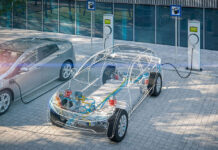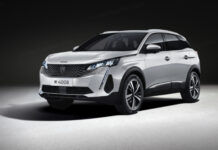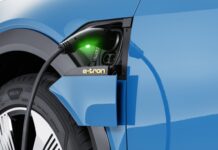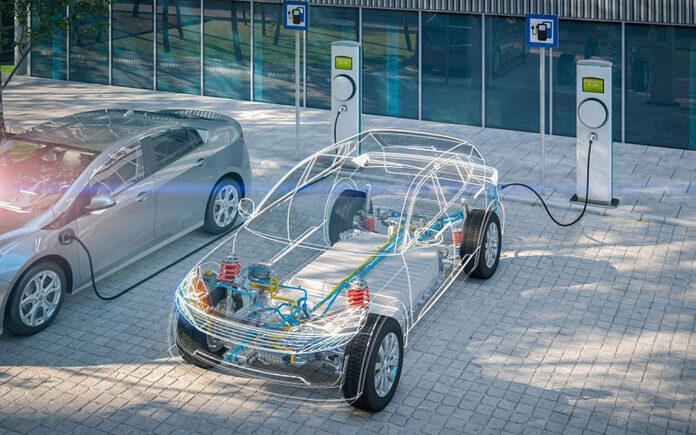by CarBook,
Hybrid cars combine the benefits of traditional internal combustion engines with electric motors, offering improved fuel efficiency and reduced emissions. Despite their popularity, there are still myths and misconceptions surrounding hybrid technology. This guide aims to debunk common myths, highlight the benefits of hybrid cars, and provide practical buying tips for consumers considering a hybrid vehicle.

Hybrid cars have emerged as a popular choice for environmentally conscious drivers seeking fuel efficiency without sacrificing performance. In this comprehensive guide, we’ll explore the benefits, debunk common myths, and provide essential buying tips for those considering a hybrid vehicle.
Benefits of Hybrid Cars:
- Fuel Efficiency: Hybrid cars combine a traditional gasoline engine with an electric motor, resulting in significantly improved fuel efficiency compared to conventional vehicles. This translates to fewer trips to the gas station and lower overall fuel costs.
- Reduced Emissions: By relying on electric power at lower speeds and during idling, hybrid cars produce fewer emissions than their gasoline counterparts. This makes them a greener option for eco-conscious consumers looking to reduce their carbon footprint.
- Tax Incentives: Many governments offer tax incentives and rebates to encourage the purchase of hybrid vehicles as part of their efforts to promote sustainability and reduce air pollution. These incentives can help offset the initial cost of purchasing a hybrid car.
- Regenerative Braking: Hybrid cars utilize regenerative braking technology, which captures and stores energy generated during braking and converts it into electricity. This energy is then used to recharge the car’s battery, further enhancing fuel efficiency.
- Silent Operation: Hybrid cars often operate in electric mode at lower speeds, resulting in a quieter and more serene driving experience compared to traditional gasoline-powered vehicles. This silent operation also reduces noise pollution in urban environments.
Common Myths About Hybrid Cars:
- High Maintenance Costs: Contrary to popular belief, hybrid cars do not necessarily have higher maintenance costs than traditional vehicles. In fact, they often require less frequent maintenance due to their simpler drivetrain and regenerative braking system.
- Limited Range: While early hybrid models may have had limited electric-only range, modern hybrid cars feature advanced battery technology that allows them to travel significant distances on electric power alone. Many hybrid models offer range-extending features such as regenerative braking and engine-assist systems.
- Lack of Power: Another common misconception is that hybrid cars lack power and performance compared to traditional gasoline-powered vehicles. However, many modern hybrid models deliver ample horsepower and torque, providing a smooth and responsive driving experience.
- Short Battery Lifespan: Hybrid car batteries are designed to last for the lifetime of the vehicle and typically come with warranties ranging from 8 to 10 years. Advances in battery technology have led to improved durability and longevity, dispelling the myth of short battery lifespan.
- Limited Model Options: Hybrid technology is no longer limited to compact sedans and hatchbacks. Today, consumers can choose from a wide range of hybrid vehicles, including SUVs, crossovers, and even luxury cars, offering plenty of options to suit different preferences and lifestyles.
Buying Tips for Hybrid Cars:
- Consider Your Driving Habits: Assess your typical driving patterns and determine whether a hybrid car aligns with your needs. Hybrid vehicles are ideal for city driving and stop-and-go traffic, where electric power can be utilized most effectively.
- Research Available Models: Take the time to research and compare different hybrid models to find one that meets your requirements in terms of size, features, and budget. Consider factors such as fuel efficiency, driving range, and available incentives.
- Test Drive Multiple Models: Schedule test drives of multiple hybrid cars to experience their performance, comfort, and handling firsthand. Pay attention to factors such as acceleration, braking, and overall driving dynamics to ensure a satisfying driving experience.
- Evaluate Total Cost of Ownership: In addition to the upfront purchase price, consider the total cost of ownership, including maintenance, insurance, and fuel expenses, when evaluating different hybrid models. Look for models with competitive pricing and low operating costs.
- Explore Financing and Incentives: Investigate financing options and available incentives, such as tax credits, rebates, and special financing rates, to maximize your savings on a hybrid car purchase. Many dealerships and manufacturers offer attractive financing deals for hybrid vehicles.
By understanding the benefits, dispelling common myths, and following these buying tips, you can make an informed decision when purchasing a hybrid car. With their fuel efficiency, reduced emissions, and advanced technology, hybrid vehicles offer a compelling solution for environmentally conscious drivers seeking a greener and more sustainable transportation option.















